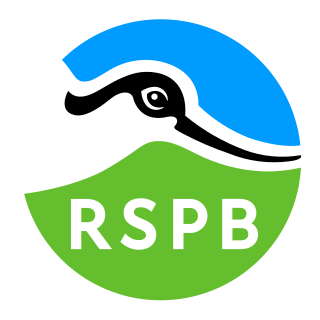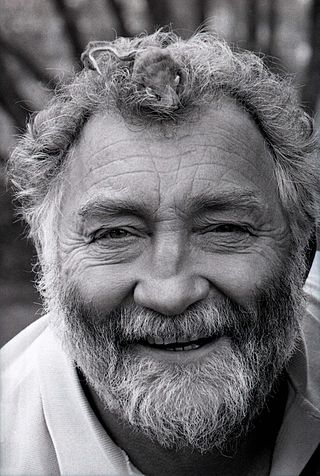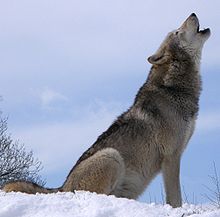
Dame Joanna Lamond Lumley is a British actress, presenter, former model, author, television producer and activist. She has won two BAFTA TV Awards for her role as Patsy Stone in the BBC sitcom Absolutely Fabulous (1992–2012) and was nominated for the 2011 Tony Award for Best Featured Actress in a Play for the Broadway revival of La Bête. In 2013, she received the Special Recognition Award at the National Television Awards and in 2017 she was honoured with the BAFTA Fellowship award.

The Royal Society for the Protection of Birds (RSPB) is a charitable organisation registered in England and Wales and in Scotland. It was founded in 1889. It works to promote conservation and protection of birds and the wider environment through public awareness campaigns, petitions and through the operation of nature reserves throughout the United Kingdom.

Twycross Zoo is a medium to large zoo near Norton Juxta Twycross, Leicestershire. The zoo has the largest collection of monkeys and apes in the Western World, and in 2006 re-launched itself as "Twycross Zoo – The World Primate Centre".

The Scout Association is the largest Scouting organisation in the United Kingdom. Following the rapid development of the Scout Movement from 1907, The Scout Association was formed in 1910 and incorporated in 1912 by a royal charter under its previous name of The Boy Scouts Association. It is a founding member organisation of the World Organization of the Scout Movement.

A wolfdog is a canine produced by the mating of a domestic dog with a gray wolf, eastern wolf, red wolf, or Ethiopian wolf to produce a hybrid.

David James Bellamy was an English academic, botanist, television presenter, author and prominent environmental campaigner in the UK and globally. His distinctive, energetic style of presenting became well known to UK television audiences in the 1970s and 1980s. Later in life, he made some sceptical statements about climate science.

The Bow Group is a UK-based think tank promoting conservative opinion. Founded in 1951, it is the oldest group of its kind, counting many senior Conservative Party MPs and peers among its members. It represents a forum for political debate with its varied programme of events and official journal.
The Born Free Foundation is an international wildlife charity that campaigns to "Keep Wildlife in the Wild". It protects wild animals in their natural habitat, campaigns against the keeping of wild animals in captivity and rescues wild animals in need. It also promotes compassionate conservation, which takes into account the welfare of individual animals in conservation initiatives. Born Free also creates and provides educational materials and activities that reflect the charity's values.

The Computer Conservation Society (CCS) is a British organisation, founded in 1989. It is under the joint umbrella of the British Computer Society (BCS), the London Science Museum and the Manchester Museum of Science and Industry.

Population Matters, formerly known as the Optimum Population Trust, is a UK-based charity that addresses population size and its effects on environmental sustainability. It considers population growth as a major contributor to environmental degradation, biodiversity loss, resource depletion and climate change. The group promotes ethical, choice-based solutions through lobbying, campaigning and awareness-raising.

Cub Scouts, often shortened to Cubs, are a section of Scouting operated by The Scout Association with a core age of eight to ten and a half years of age. This section follows on from the Beaver Scouts and precedes the Scout section.

Anthony Edgar Sale was a British electronic engineer, computer programmer, computer hardware engineer, and historian of computing. He led the construction of a fully functional Mark 2 Colossus computer between 1993 and 2008. The rebuild is exhibited at The National Museum of Computing at Bletchley Park in England.
John Wood Group plc, commonly known as Wood, is a British multinational engineering and consulting business with headquarters in Aberdeen, Scotland. It is listed on the London Stock Exchange as well as being a constituent of the FTSE 250 Index.

Gordon John Buchanan is a Scottish wildlife cameraman, filmmaker and presenter. His work includes the nature documentaries Tribes, Predators & Me, The Bear Family & Me, The Polar Bear Family & Me and Life in the Snow.
The Great Plant Hunt is a primary school plant science learning initiative, developed by the Royal Botanic Gardens, Kew, and funded by the Wellcome Trust. It is supported by DEFRA, Sir David Attenborough, and Science Learning Centres in the UK.

Erich Klinghammer was a German and American wolf biologist best known for his contributions to the fields of ethology and behavioural ecology, particularly that of canids. He was the founder of Wolf Park in Indiana and a professor of animal behaviour at Purdue University.

The Yorkshire Wildlife Park is a zoo, wildlife conservation and rehabilition centre and tourist attraction located in Branton, south-east of Doncaster, South Yorkshire, England. It opened in 2009 on the site of Brockholes Farm, a former riding school and petting zoo, and features 500 animals of 100 species. Yorkshire Wildlife Park is an official member of the British and Irish Association of Zoos and Aquariums (BIAZA) and the European Association of Zoos and Aquaria (EAZA).

Alladale Wilderness Reserve is a 23,000-acre (93 km2) highland estate in the Caledonian Forest in Sutherland, in the Scottish Highlands. The estate was purchased in 2003 by conservationist and philanthropist Paul Lister, who hopes to recreate a wooded landscape and reintroduce native animals including predators such as the Scottish wildcat and the wolf. It is now being managed as a privately-owned nature reserve that aims to promote biodiversity and associated tourism at the forefront of its mission. The idea of a wilderness reserve was inspired by Lister's visits to South Africa's ever popular game reserves, and to create an area of outstanding natural beauty, where a pack of European wolves could be released into a controlled reserve. This has been proven in South Africa, when over-grazed farmland has been returned to a more natural state.

Cecil was a male African lion who lived primarily in the Hwange National Park in Matabeleland North, Zimbabwe. He was being studied and tracked by a research team of the University of Oxford as part of a long-term study.

Wolves in Wolves was a public art exhibition which took place in Wolverhampton, England, between 5 July and 24 September 2017.


















